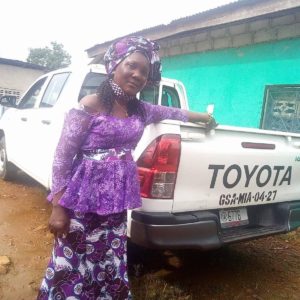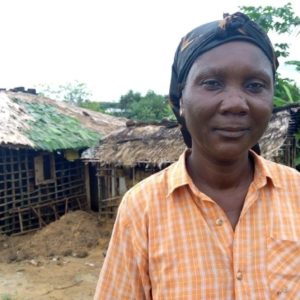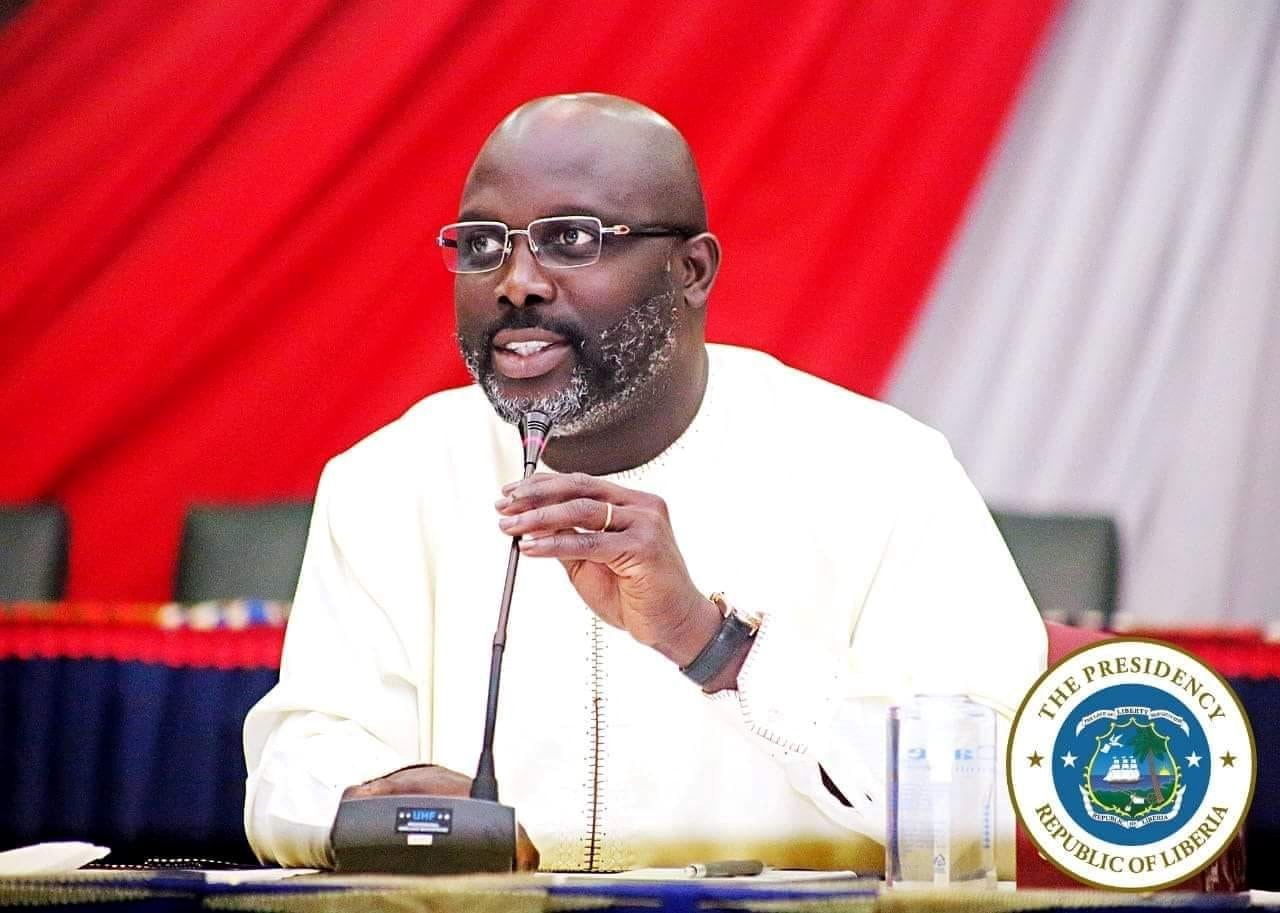PHOTO: Grand Kru County’s Native: Liberia’s Head of State George Manneh Weah
By Samuel G. Dweh, Freelance Development Journalist, an President—Liberia Association of Writers (LAW), Contacts —+231 (0)886618906/776583266/samuelosophy@yahoo.com/samuelosophy1@gmail.com
Majority of members of other Ethnic Groups in Grand Kru County, situated in Southeastern Liberia, sometime refer to the Wedabo Ethnic Group as “Nazareth”—a real-life fnative home of Jesus Christ’s family.
According to Biblical historians, this part of the Jewish Nation was often scorned by members of other Towns on lack of outstanding production by its citizens. A question from a Pharisee—from another region in economic/academic/intellectual competition against Jesus’ Home Town (Nazareth)—highlighted the entrenched condemnatory perception against the Messiah’s lineage: “Can anything good come from Nazareth?”
The Wedabos Ethnic Group being referred to as “Nazareth” is due to its being less assertive in Grand Kru County’s educational and political spheres, even though many of its members are smarter (academically) compared to members of other tribal groups; and the Ethnic Group has the highest numerical strength (voting power) above each of the other parts of the County.

Grand Kru County’s Superintendent Doris N. Ylatun poses her “Government’s Official car” in Monrovia on Sunday, September 20, 2020
At 3:15pm of Sunday, September 20, 2020, a white TOYOTA Pickup, marked GSA-MIA-04-27, rolled from the tarred express lane in the Point-Four Community of Bushrod Island, outside of Liberia’s capital, Monrovia, moved slowly on a narrow route between residential places and business centers, and stopped in front of a green house (pictured above) The “GSA” means “General Services Agency”, the Liberian Government’s entity responsible for purchase and maintenance of all Government’s asset; the “MIA” stand for “Ministry of Internal Affairs”, a Government’s arm through which vehicles are supplied to head of Local (County) Authority.
The vehicle’s load section and the back-seat (behind the driver’s section) were full with young and older persons in their various “Church suits”. Many were hilariously chatting.
Only one passenger, female, was with the driver. She was in lace suit with predominantly purple color suit and tiny white strips. Her body puffed up than the ones I had seen in 2016 and 2017 in Barclayville, the capital of Grand Kru County, during “ancestral re-connection visit” (2016) and personal “national electioneering monitoring visit” (2017)
This person is Madam Doris Nyanplane Ylatun (leaning against the car in the second photo above), born on February 1, 1966, the second child on the list of six children from the union of Mr. Daniel Ylatun (now deceased) and Mrs. Esther B. Ylatun, one of handful of Wedabo women who had meritously crossed High School and earned a College Degree. She earned an Associate Degree in Management from the Lincoln Commercial Institute, in Monrovia.
During my 2016’s visit in the County, she was serving as “County Coordinator” to the South-Eastern Women Development Association (SEWODA), which she joined in 1996.
Under her supervision, SEWODA undertook the following projects in various Statutory Districts of Grand Kru County: Barclayville Central Market; latrines and hand pumps in Buah Geeken, Camp Three (in Barclayville), Wahkpeken, Planplanken, Kladia and Kunia communities; Picnic Cess Public School, George Toe Washington Public School (in Barclayville); Glebo Junior High School in Glebo (in Trehn Statutory District); road-side brushing (cutting of bush into footpah); and many other ‘Community development/beautification’ projects across the County.
In the County, I called the SEWODA County Coordinator’s attention to workers’ use of cutlasses for clearing bush into a foot track stretching hundreds of meters, instead of use of modern machinery.
“For now SEWODA doesn’t have money for purchase of modern machinery like caterpillar, so we buy cutlasses and whippers and we appeal to community members to join us on beautifying their places. We offer a wage for each community member that worked,” Madam Ylatun, a mother, and soft-speaking SEWODA’s official had explained to me on one of the Association’s Project Sites where she was on inspection of on-going work.
I didn’t see a “community’s development project” by any of her tribal colleagues who would be her political opponents in Liberia’s House of Representatives (HOR) elections in 2017.
Those at the vehicle’s load compartment, during my meeting with Madam Ylatun in Monrovia, on Sunday, September 20, 2020, were the first to alight, followed by those in the back-seat. The total number was nine.
The car’s ‘owner’ came out after the back-seat occupants alighted. Her eyes caught me standing ten meters away, watching the scene, when she was on the ground.
“Sam, I’m sorry, for keeping you waiting, the Church service was longer today than I had thought” she said to me.
“Honorable Superintendent of Grand Kru County!” I hailed her.
“Mr. Writer!” she responded.
“Is that the new ride for the new Superintendent?” I referred to the Pickup.
“That’s the car the Government gave to me,” she replied.
“Price?” I asked.
“Very expensive,” she replied, concealing the cost of the vehicle. “Brand new!” she laughed.
“Befitting the status of a County’s Superintendent!” I flattered, “replacing that near-wreck, named Pickup, I saw with you in Grand Kru County in 2016 and 2017.”
On my reconnection-to-ancestral-home (Wedabo District) visit in Grand Kru County in 2016, I met Madam Doris Ylatun, now a business person (running the Silver Key Guest House) in the County’s capital (where she was living) My purpose of reaching her was to confirm information other people had given to me in Liberia’s Capital, especially about her education-based perseverance and her “outstanding community services” (for the entire Grand Kru County) through SEWODA, the women’s development-based empowerment Organization on which I had connected with her during my first visit (2016).

Prior to being County’s Superintendent: Ms. Doris Ylatun on County-wide implemented projects inspection tours for SEWODA (2016)
During my 2017’s visit, she was running her campaign for the Liberian House of Representatives (HOR) Elections for Electoral District #1 (on the ticket of the Coalition for Democratic Change CDC).
But she wasn’t lucky with “majority votes” at the end of voting time. She was the only female candidate against five men—four from her Ethnic Group (Wedabo) The “Traditional Leadership” of this Ethnic Group—with the highest numerical power (voting population)—couldn’t agree on the entire Wedabo population fielding only one candidate. Most of the leaders were pushing only a “Quarter colleague”, even though the only woman (from the Ylatuen Quarter) had stayed longer time in the County and done “development projects” (covering over ten years) than any of her kinsmen fielded against her. This “division” caused defeat of the entire Wedabo Ethnic Group, represented, and its absence in the current National Legislature of Liberia.
Nonetheless, her Party’s Presidential candidate, in the same Election, (Senator) George Manneh Weah, captured the Nation’s exalted Seat with “highest number of votes” as announced by the Jerome Korkoya-led National Elections Commission (NEC)
In 2018, her Party’s #1 person, George Manneh Weah, now Head of State, offered a “consolation job”—Superintendent of Grand Kru County—to her.
“The Certificate of appointment says something about my being responsible for the oversight of the County, on behalf of the Head of State, Dr. George Manneh Weah,” the new Grand Kru County’s Superintendent, Doris Nyanplane Ylatun, told this writer in a brief interview in Monrovia on Sunday, September 27, 2020 at a meeting of a group of young persons of her Ethnic Group.
President George Manneh Weah’s appointment of Madam Doris N. Ylatun as Superintendent of Grand Kru County is a “connection” to her Ethnic Group, named Wedabo, the most disadvantaged section of the County—on modernized infrastructures (roads, educational institutions, health facilities, etc.)—compared to other sections represented by Ethnic Groups. And, by this “connection”, the Head of State, a Grand Kru native from Sasstown, has automatically committed himself to transforming the current “hideous physical features” hideous of the Wedabo section of the County to “attractive ones”
I, personally, will engage the Head of State—respectfully—to “beautify” this woman’s “ancestral place”, because she was the only person who ran on his Political Party’s ticket for the House of Representatives Elections (in 2017), and for her continuously preaching the name, “George Weah” (during campaign) the Presidential candidate, in the terrain of virulent opposition to the name, fuelled by most of the County’s Legislators on the side of Joseph Nyumah Boakai (Unity Party’s Presidential candidate) These elections-time “anti-Weah” elements are now “Weah’s paddies”
Here is a short list of the dozens of “ugly” physical features of Superintendent Ylatun’s Ethnic Section President George Weah has “connected” with.
- Majority of residential structure are constructed with mud and roofed with grass straw or palm thatch.
- There’s no electricity. (Source of light in homes during nighttime is from car’s battery, and for charging of mobile phones)
- No plain road (all roads are bumpy or dotted with mud that sometime reaches above a person’s ankle) and some of the communities are cut off from other Towns due to absence of road.
- No health center in many of them.
- Only one senior high school in only one community (Grand Cesss) and has no library and insufficient teaching staff.
- There’s teacher shortage in each Elementary & Junior High across the district, which often pushes some principals of many of the schools to go into the classroom to teach two to three subjects.
These are problems Madam Ylatun wanted to solve through a Legislative platform, but the “voting majority” of Electoral Distrct #1 decided on Nathaniel N. Bahway, a trado-medic.
For road creation or pavement matter, President George Weah’s “infrastructural presence” has lifted Madam Ylatun on her ancestral part of the County. Through the Government of Sweden, working through the Swedish International Development Association (SIDA), the Head of State created a road into Juduken (in 2020)—one of the six Towns of the Wedabo section of the County. This road connects Juduken to many of the other five Towns— Towns—Beloken, Gbanken, Ylatuen, Wedabo Beach, and Zoloken. Prior to appearance of the road, movement used to be only with leg, covering at least four hours. I ha ploughed this route in 2017, when I was on my personal “Elections Campaign monitoring tours” within each of the Wedabo Towns and other parts of Grand Kru County.
The Juduken Road is President George Manneh Weah’s “infrastructural legacy” in the Wedabo quarter—always abandoned or ignored by each of his predecessors. For example, Presidential candidate Ellen Sirleaf on a campaign tour in a Wedabo Town (Ylatuen), through the connection of Representative George Wesseh Blamoh, in 2011, promised her hosts that she will connect the entire Wedabo section with paved roads, if she got a large number of votes from the Wedabo circle of Grand Kru County.
Presidential candidate Ellen Johnson Sirleaf got the highest number of votes in the Wedabo section, over her Presidential opponent Winston Tubman, , but the Wedab people never saw a road-pavement machine throughout Madam Sirleaf’s Second Term of six years. On President Sirleaf’s failure on construction of road, the Wedabo people verbally pounced on their kinsman, George Wesseh Blamoh (the first Wedabo Legislator), blaming him for facilitating Madam Sirleaf’s ‘political swindle’ of the region.
There’s also President George Manneh Weah’s “residential legacy” on his “Pro-Poor Housing Units” in his paternal Home Town of Grand Kru County: Sasstown (not part of Wedabo)
However, some Grand Kruans had criticized the President over starting a housing project first in his Home Town, which they say was already residentially blessed on political favoritism by construction of houses prior to his Presidential ascension, instead of starting from one of the most residentially deprived parts like the Wedabo section.
“People should stop politicizing the President Weah’s Housing Project for the poor people in our County,” County’s Superintendent Ylatun lashed out at one of the critics who confronted her on the issue during a meeting to discuss developmental issues in the County. “We should exercise patience. President George Weah doesn’t hate any part of the County the Presidential Housing Project didn’t start from. The Pro-Poor houses will soon appear in all the other parts of the County. President Weah isn’t a partial man.”
By nature, Madam Ylatun isn’t a loquacious person, which contributed much to her loss of votes during the HOR elections.
“The Wedabo people don’t want a person who won’t be vocal in the House of Representatives on deliberating the Wedabo issues.” This assertion was from an influential member of the Campaign Team of Mr. Assaf Kumeh, Madad Ylatun’s political opponent on the ticket of Liberty Party for the Grand Kru County’s District #1’s seat at the National Legislature. He spoke to me during my personal views sampling when I was in the District during campaign time in 2017.
On a campaign-time visit in Forkpoh, a Town outside of the Wedabo belt, Congress for Democratic Change’s candidate Doris N. Ylatun replied to the comment made days earlier about her not being a natural loquacious person. “Good leadership isn’t about loud talking. It is action that gets the people’s work done, not talking.” She didn’t disclose to her hosts the name of her political opponent who had lambasted her on her “natural soft-talking”
Prioritizing the education of young women of Grand Kru County was one of the campaign promises from HOR Aspirant Doris Nyanplane Ylatun, who is of a part of Liberia where majority of school-age women do not go beyond junior high school level (9th Grade) due to parents’ coercion for farm works for any school-age girl, forced early marriage, husbands’ lack of interest for educating their illiterate wives; and education advocates’ fear of challenging a culture that restricts women to the farm work or the kitchen.
“We should encourage and support our girls or women to go to school, so that they will contribute to community’s development, and to compete with men for presidential or legislative positions.” This was Ms. Ylatun’s advice to the gathering of her Ethnic Group, represented by Chiefs of the six component Towns, held in Zoloken (Town) June 9, 2017.
Now serving as the link—connection—between the Head of State (George Manneh Weah) and her Ethnic Group (Wedabo), Grand Kru County’s new Superintendent Doris Nyanplane Ylatun has a bigger financial platform to educate her junior kinswomen. And to drastically trim the height of political and socio-economic walls that had been preventing Wedabo Section’s march to a better life over six decades.
The Wedabo section’s natural blessings— Rich forest (with huge quantities of Timber, gold, diamond, animal species, etc.), highly fertile mangrove swamp (for farming activities), and large quantities of Creeks with surplus fish species—can facilitate President Weah’s physical effort of changing the collective “infrastructural”, “economic”, and “educational” name: “Nazareth”
End this incomparable suffering of the Wedabo people in Grand Kru County!
About the Author:
Samuel G. Dweh is a member of the Wedabo ethnic group of Grand Kru County, situated in the South-Eastern part of Liberia. He’s a member of the Press Union of Liberia (PUL), and President of the Liberia Association of Writers (LAW) He can be reached via: —+231 (0)886618906/776583266/samuelosophy@yahoo.com/samuelosophy1@gmail.com

